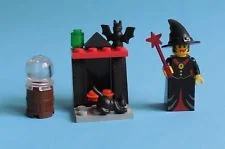THE BREAD OF LIFE - Gareth Higgins
You can share this article to Facebook by clicking here.
In northern Ireland, where I’m from, we’ve been on a journey from division toward unity. The ongoing evolution of politics from a zero-sum game that sometimes claimed to justify murder to a common-good-oriented society continues.
In terms of progress, it has been two steps forward and one back ever since the Belfast/Good Friday Agreement in 1998, when parties who had previously refused to even speak to each other negotiated a treaty that committed them to nonviolence, sharing power, and dealing with the legacy of the past. And though we’d wish to make only forward progress, two steps forward and one back is still a net gain of one step. Some of the steps of the peace process are themselves far more than small steps: the agreement to commit to nonviolence to achieve political ends, the commitment to share power across the community instead of one winner taking all, and the use of more representative voting methods are each generational leaps forward. When these agreements finally take root, we may have a kind of democracy rarely seen: one in which everyone not only is represented, but feels represented.
During the last few weeks, we have seen a crisis where we threaten to take more than one step backward. Like much else in northern Irish history, the sublime and the ridiculous mingle, or the horrifying and the tender. The day before the 42nd anniversary of the Kingsmill massacre (when people claiming to act on behalf of the Irish Republican movement murdered ten Protestant laborers), an Irish Republican politician named Barry McElduff tweeted a video of himself in a grocery store with a loaf of bread on his head. In the tradition of family and town names given to food, the loaf was a Kingsmill loaf. Whether or not the politician intended to allude to the massacre (he denies it), his tweet reopened a wound.
We might wish he had identified that what we should be doing with bread is feeding each other. But in any case, something remarkable happened: leaders in the Irish Republican movement apologized—and not only for the hurt caused by the video. Their representative, John O’Dowd, who himself had lost loved ones to violence, went further by saying that the massacre itself was “wrong” and “shameful.” It is rare to hear such unqualified rejection of past violence by northern Irish politicians speaking on behalf of the movements responsible for that violence. The response from the pro-British Unionist politician Edwin Poots was to say that the killing of O’Dowd’s relatives was also wrong and never should have happened. Ultimately, McElduff resigned as a member of Parliament, recognizing that he had become a distraction from the larger cause of reconciliation and that the hurt caused to the survivors of the massacre was the most important issue at stake.
It may seem that acknowledging the wrongness of the murder of your political opponents or members of their community should be just about the easiest thing public representatives could do. But in a society like northern Ireland, the legacy of violence and division includes the belief that one must at all costs make the other side seem more responsible for its violence—and that one’s own side only committed violence in reason and self-defense. In such a climate, saying “I see your pain, and what my people did to yours was wrong” risks political reputations.
So when people do it, it’s kind of a miracle. And when observers respond by noting the inner affirmation that such was the right thing to do, anything’s possible.
What is the secret to this miracle?
Any peace process is as complex as the people involved, so it’s a tricky thing to imagine what 1.7 million northern Irish people might say to 323 million US Americans. But I’ll risk looking naive because the prize of a reconciled community is more important. If there are lessons from northern Ireland that could apply in the current political moment in the US, they might be summarized as the recognition that we need to get to know our neighbors. Part of that knowledge is learning once and for all that creating belonging does not depend on exclusion. The act of meeting each other’s legitimate needs for security and comfort does not depend on causing any of us to suffer.
Our desire for belonging isn’t the problem, but the way we belong. We don’t have to wait until there’s a massacre to take the steps required to be neighbors who recognize that our most significant interests—for relationship, for a place to belong, for shelter—are shared.
If you’d like to take one small step toward knowing your neighbors, I invite you to consider forming a Porch Circle where you live. This is a group of between three and eight people seeking to get to know each other and support each other’s journey to an authentic life that co-creates more peace in the world. Click here for more information.





